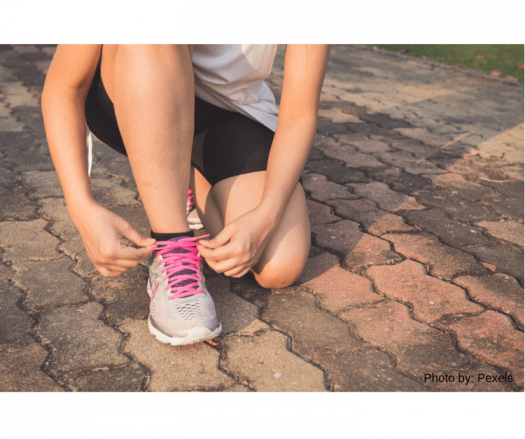By: Annabelle Shaffer, BS, Master’s candidate in the Division of Nutritional Sciences at University of Illinois Urbana-Champaign
Importance of Exercise
We’ve all heard it many times…exercise is important! Exercise is often only thought of as a method of weight loss and maintenance, but it has several other significant health benefits:
- Heart health: Exercise strengthens our heart muscles and increases blood flow.1 Additionally, regular exercise can lower blood pressure and triglyceride levels.1
- Mental health: Exercise triggers the release of certain endorphins and neurotransmitters leading to a decrease in stress and anxiety.2
- Cancer: Regular exercise can reduce your risk of developing colon, breast, lung, and uterine cancer.1 Additionally, randomized controlled studies have shown that cancer patients who exercise have a reduced mortality rate.3
- Muscular and bone strength: Regular exercise maintains and builds muscular strength. In children, exercise is important in building strong bones.1
Exercise Recommendations
The US Office of Disease Prevention and Health Promotion recommends children to complete at least 60 minutes of moderate to vigorous physical activity each day.4 It is ideal that these 60 minutes consists of aerobic, muscle, and bone strengthening exercises. Adults should complete 150-300 minutes of exercise weekly, or 20-40 minutes of exercise daily.4 Like children, adults should perform both aerobic and resistance training exercises.
While 150 minutes per week is the recommended minimum, there is still tremendous value in completing any amount of exercise. In fact, a large study found that smaller amounts of physical activity correlated to a 22% decrease in mortality.5
Maintaining Fitness on Vacation
With summer vacation, your exercise routine may get put on the back burner. However, physical activity is important all year round to maintain optimal health. To stay on track, try incorporating the following activities while on vacation:
- Swim laps at the hotel or neighborhood pool
- Explore nature by hiking with your family
- Biking around town
- Walking to and from sights whenever possible
- Get adventurous and try paddle boarding, surfing, or snorkeling
- Start your day with a few bodyweight exercises: push-ups, squats, lunges, triceps dips, or burpees
Photo by Pexels.
References:
- Benefits of Exercise: MedlinePlus. Medlineplus.gov. https://medlineplus.gov/benefitsofexercise.html. Published 2019. Accessed May 25, 2019.
- Matta Mello Portugal E, Cevada T, Sobral Monteiro-Junior R et al. Neuroscience of Exercise: From Neurobiology Mechanisms to Mental Health. Neuropsychobiology. 2013;68(1):1-14. doi:10.1159/000350946
- Cormie P, Zopf E, Zhang X, Schmitz K. The Impact of Exercise on Cancer Mortality, Recurrence, and Treatment-Related Adverse Effects. Epidemiol Rev. 2017;39(1):71-92. doi:10.1093/epirev/mxx007
- Physical Activity Guidelines – health.gov. Health.gov. https://health.gov/paguidelines/. Published 2019. Accessed May 24, 2019.
- Hupin D, Roche F, Gremeaux V et al. Even a low-dose of moderate-to-vigorous physical activity reduces mortality by 22% in adults aged ≥60 years: a systematic review and meta-analysis. Br J Sports Med. 2015;49(19):1262-1267. doi:10.1136/bjsports-2014-094306













